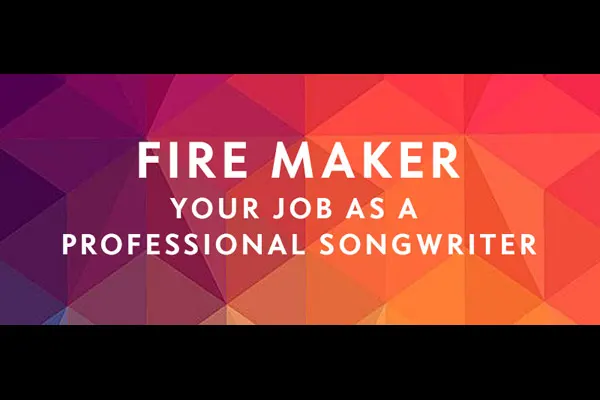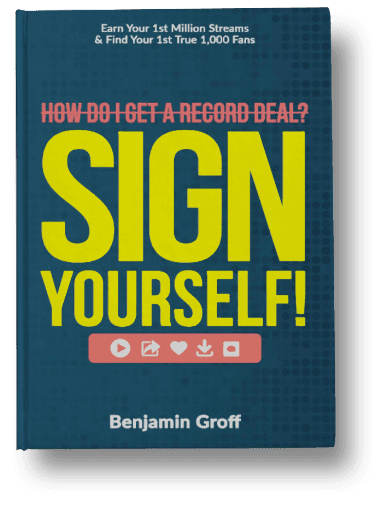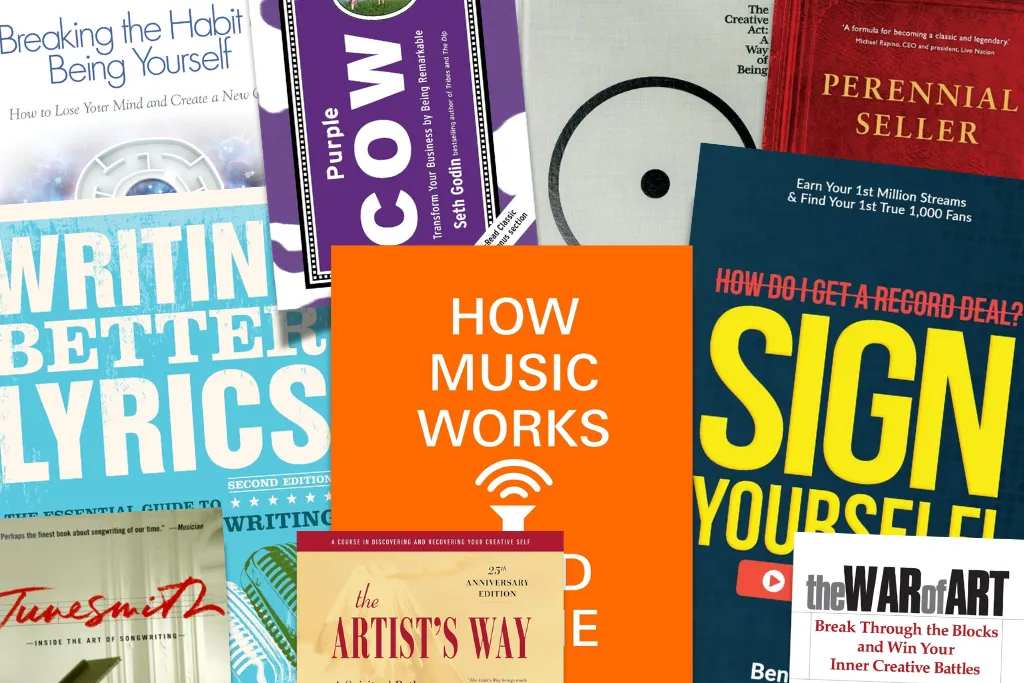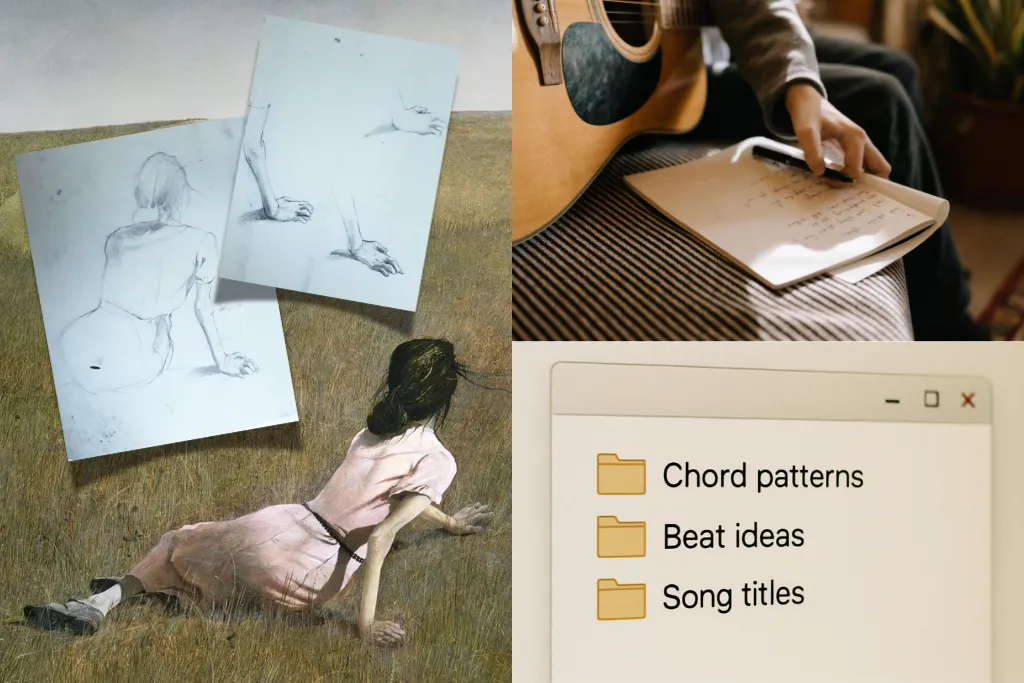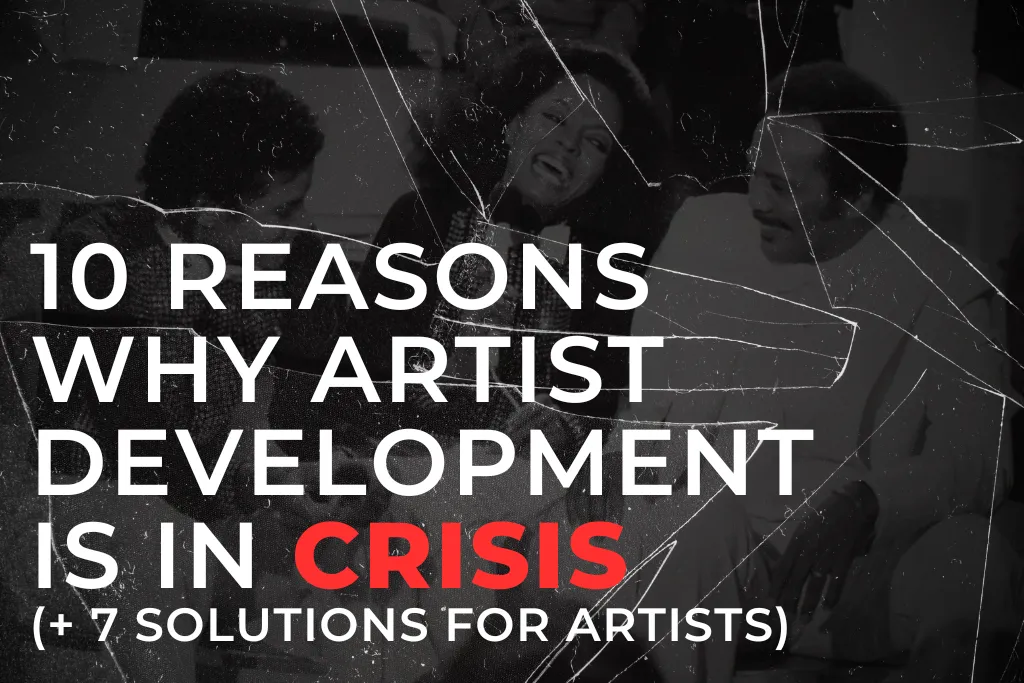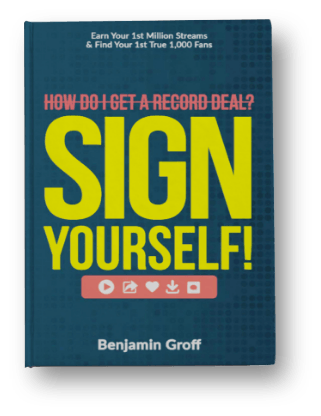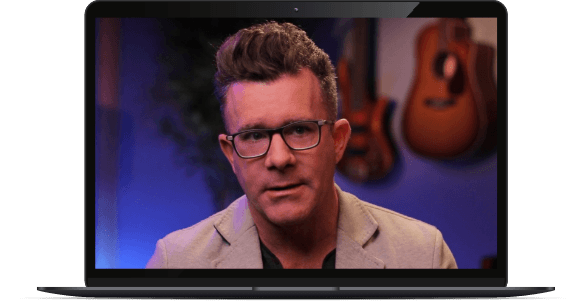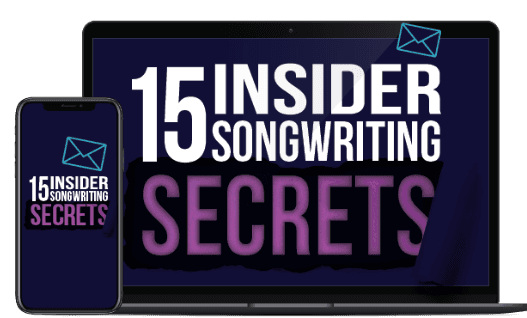YOU. HAD. ONE. JOB.
This blog post reminds me of some of my favorite memes, you know the ones that say, “You Had. One. Job.” But when it comes to the role of a professional songwriter … it’s totally true. You only have ONE job.

And I’m going to break it down simply. Your only job is … ONLY … TO MAKE … FIRE! YES. FIRE! That’s it! Not just any fire … but F I R E in a Brian Johnson, AC/DC kind of “FIGGGGHHHYAHHHHHHH!!!!” way. (For those uninitiated please refer to this link to “For Those About to Rock” for my reference).
In other words, your job isn’t to make “nice” and “pretty good” music. Why? Because everyone and anyone is already doing that. And at the end of the day in my book of “what counts” (especially today), no one cares about passivity especially today within the context of 100,000 new releases per week … literally (that number is not an exaggeration).
Your only option as a songwriter today in this climate is to make hits (aka “FIRE”) or do amazing with synchronization licenses (which are also usually “fire” songs!).
Now, let’s make sure for any of the “sensitive” artists out there (but this applies to them as well), this blog post is mostly within the context in the frame of the duties of a “professional songwriter.” That is … creating hits for other artists. If you’re an artist, this post also 100% surely and absolutely applies to you as well, but I wanted to frame the specific conversation about writing hits (notice I didn’t say “nice songs”).
So let me say this again. In the role of a professional songwriter, A&R people and major labels only want one thing from you. FIRE. And … when it comes to their time, they only want to talk with, take meetings with, and surround themselves with who???? You guessed it.
FIRE MAKERS.
If you’re not getting the 1st tier (much less the 2nd tier) or any (!) A&R calls for a project or a superstar artist for songs or co-writes … it’s simply because of this. You are not (yet) a recognized fire maker. Please note that “fire maker” is not synonymous with “currently having a hit” or “recently had a hit.” Those titles help … but at some point, every professional songwriter gets to earn that title … even myself.
Being a recognized “fire maker” is extremely and vitally important because major labels know that you are ONE OF THE ONLY people they can count on to deliver the ONE THING that keeps the major labels alive. FIRE … YES, FIRE! 1st Singles. That are usually …uptempo – or have tempo. In other words … FIRE.
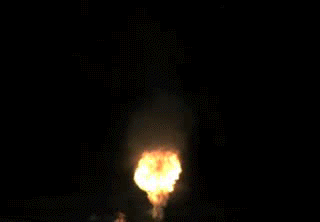
Your Inner Caveman
But quick prehistoric lesson here. Why do we give so much respect to fire? Well, quick analogy here and hopefully this will frame the context of why this is so important.
Back in the caveman days … the most important people were the caveman or cavewoman who could literally … create the fire. You don’t want to hang around those lame cavemen people who don’t know how to use flint and steel when you’re starving and freezing your ass off do you?
It’s the perfect analogy. Because if you can’t bring the fire … you’re the equivalent to the useless caveman holding the flint not knowing how to use it. I’m so sorry.
No one cares about you.

Sitting on both sides of the fence … meaning, the one who’s actually pitching and selling the records for you, and a past semi-professional songwriter, that’s the only type of song I would be writing, if I was sitting down at the keyboard/computer today within the context of the role of a professional songwriter.
Solely and only … making what A&R people need.
FIRE.
That concept is so simple … but you’d be surprised how many songwriters sit at their studio desk and spend entire years creating music that A&R people simply….DO. NOT. NEED!!! Part of me thinks it’s because no one has told them and/or much like the light shown down on John Belushi in “Blues Brothers”… but sometimes it just takes time, sometimes years for those future hitmakers to figure it out. And then it’s one year … no hits. The next year + 10 hits. And recognized Fire Maker status!
Give Them What They Want
Let me give you another analogy.
You go to the pizza parlor to get pizza, right? The pizza restaurant makes pizzas for people who LOVE and want to eat pizza. And you want to get the BEST pizza in town, no? But what about the pizza place where you go to order a pizza and they say, “Sorry, we only have kale or fruit salad today.” You’d be like, “WTF kind of trickery is this?”
That’s what it’s like when most A&R people get songs from writers. They want pizza. They’re STARVING for a great slice!!! And you know they want pizza. But instead, you send them some cold tofu with some beet sauerkraut.
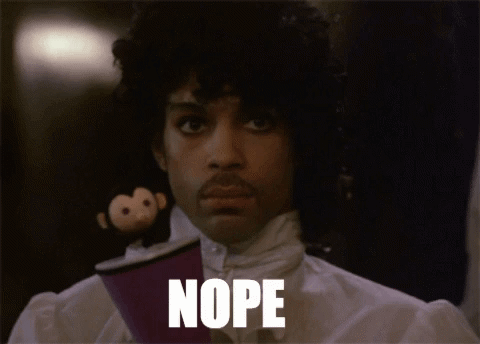
That’s an extreme but that’s what I’m talking about. You need to deliver what the labels need, otherwise why on earth should they open your email, take your call, listen to your songs or god forbid … have a meeting.
I say this all the time, but it is truly a WRITER’S MARKET, meaning if you can deliver the fire … there are millions ready to be put into your bank account.
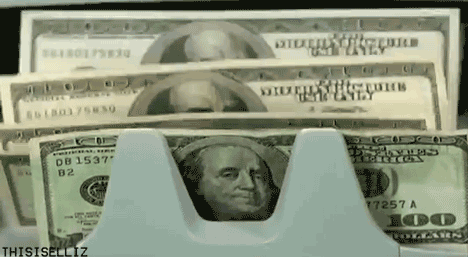
So before I get into what “fire” is (in my opinion), I’ll say this one more time. Your job is a FIRE MAKER. Not a “snooze bomb maker.” So before becoming a fire maker, we need to know what is a FIRE song?
What makes a good song? This is your list.
THE FIRE MAKER SONG BLUEPRINT (or how to write a hit song)
-
“FIRE” is an uptempo or “tempo” driven song.
Labels – still today, want singles they can take to radio. Radio usually wants songs that make people feel good, songs that keeps them tuned in and that create dopamine (pleasure hormone) releases. We don’t need your snoozefests ballads or mid tempos. If it is a ballad or mid-tempo THAT COUNTS … yes, please! Otherwise, 85% of your writing sessions should be a song that is a tempo record. I remember playing a song for Neil Jacobson at Interscope several years ago. It wasn’t even 2 measures in when he stopped the song and said, “this isn’t even a radio tempo.” As Arsenio Hall once said, “Things that make you go Hmm.” I also use this analogy all the time. If you’re in Vegas and just have an edge on the house that betting on “black” at the roulette table is going to “payout” … .then you want to bet on “black” right? Same thing here. You exponentially increase your chances of having a FIRE song being an uptempo. But you’d be surprised how many writers start their writing sessions by betting on “red.”
-
“FIRE” is Something different, fresh, and exciting.
Unfortunately, it’s an all too common idea that writers get stuck in their head that they have to write something in a tiny box to get any type of traction. In other words, “I’ll go for the juicy center and write exactly what’s on the charts and the royalties of heaven will rain down upon me.” Please … Step Away From The Misconception. It reminds me of this scene (one of many amazing moments) from the classic Steve Martin movie The Jerk. Most writers are trying to write in that 3-inch little square box window. Surprisingly, it’s what often comes from left field in the “wow what did I just hear category” that despite even the most diligent A&R brief, is sometimes the 180 degree (uhh…didn’t see that coming) song that becomes the next single. To that regard…
-
“FIRE” is fresh and exciting 2 years from now.
I’m writing this post in March 2019. Let’s say your song goes on hold for 3-6 months, then gets recorded, comes out early 2020, builds momentum, goes to radio in mid 2020, and hopefully pushes through to 2021. You need a song and a production that has a long expiration date! Here’s an idea (maybe taken from Major Ed Dames … you can figure that one out for anyone who wants to “remote view.”). As a practice, close your eyes and pretend you’re a time traveler. Drop yourself into a club or imagine turning on the radio station 2 years from now. What does it sound like? What’s the trend of the moment? Great! You’ve just become a time traveler! Now … go write that song and you’ll be two years ahead of everyone.
-
“FIRE” Songs Use Melodic Rhythm as a Mnemonic
A mnemonic is something that helps you remember. I always maintain that a great chorus is not a great melody. It’s a great rhythm first. Our primal DNA I believe locks into (in a hardcore way) rhythm. First rhythm, then melody. The first “hits” were literally rhythms played on logs and drums for a hundred thousand years. Use that as the anchor and the hook and the ORGANIZER of your melody. The rest will follow. (Despite his current cultural status…please see every Michael Jackson hit to hear a master of this rhythmic mnemonics in work). Can you sing back the song in 1 or 2 listens? If Yes, there’s probably an awesome locked in melodic rhythm working as the mnemonic for you. If not, then you probably have a lame melodic rhythm that needs to be fired.
-
“FIRE Songs” are harder, and even darker and edgier than what you expect or where the current bar is.
Obviously, you’re not going to make a Marilyn Manson song for Selena Gomez … or are you? Hmm.
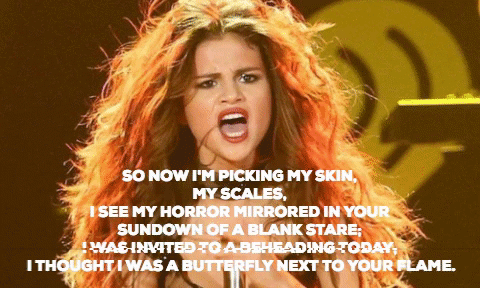
But yeah, maybe it’s not that extreme. But can your songs be a +1 or a +2, +3 on the hardness and edge factor? Please take a note from Nigel Tufnel. He gets it. “These go to 11.” Smart A&R people, and ultimately fans and listeners want that “one extra.” You can’t expect to be “fire” if you are going in “even with” or “minus one.” One other way to put it … does the song and production and beat make your nose cringe? (We called that the “stinky finger” at Berklee College of Music). If yes … you’re creating some burning smoldering smells. Great, you’re onto something.
-
If not Harder, darker, edgier … how about highly musical?! Yes, FIRE SONGS are Musical!
We’re in an era (that probably won’t let up anytime soon) of low musicality. Embrace and Push your Strengths. If you are an amazing musician … put your musicality in your music. OMG, I can’t believe I am in an era where I just said that … (to put musicality in music). But such is the 2020s. “Uptown Funk” – perfect example – great piece of music. So many juicy counterlines and hooks!
-
Jesus Christ, FIRE SONGS have a CHORUS.
There is No Dana. Only Zuul … and there ain’t no Anti Chorus! Please … step AWAY from that “let’s be cool” “anti chorus” idea you have! “Anti” and “Chorus” are two words that should never go together. So many times there’s a trend or maybe someone gets an idea in a session … aww … screw the hundreds of years of what “works” in popular songwriting. Let’s write an anti chorus that no one can sing back and instead of going big on our chorus … let’s go small. Or thinking that writing something that sounds like a hit … isn’t cool. Trust me, hits are cool! So is your house in the Hollywood Hills! FIRE SONGS also have a “Muhammad Ali Chorus”… you know that Chorus that slaps you in the face. No … actually, that punches you in the face and that has a punch line and knocks you out. Your chorus should have the equivalent effect. Can your song do this to the listener?
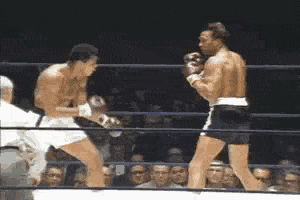
-
“FIRE SONGS” are sonically fresh.
This ties into #5 and #6. Fire songs in the production … can be just one fresh new sound or new patch, or effect that perks the ears to make it FIRE!. If you’re the producer who is continually known as the innovator and the person to go for FIRE … you’ll always be laughing on the way up the charts. This could be mashing up 2 genres that shouldn’t be together, it could be exploiting the best new vocal f/x plugin to create a signature sound (see Cher “Believe” for the auto-tune plugin that everyone used afterwards)…hell, I don’t know, hire the 80 year old virtuoso accordion maestro in your neighborhood who plays at the VFW on Thursday nights to lace your record! Make a drum set out of trash cans. Get crazy! Insert that “head tilting” what did I just hear element! The labels are shopping and keenly on the lookout for FIRE. They say “No” all the time to wet pieces of wood. They say YES ALL THE TIME to FIRE. Be the FIRE!
-
“FIRE” songs have a great concept and lyric.
I wrote an entire blog piece on this here. But, yeah … your job as a songwriter … you’re really a storyteller. Storytelling is really the 1st art form ever invented. You need a great concept, a great title, a great twist … something NEW or that EVOKES AN EMOTION (and an emotion can be getting on the dance floor to unrequited love to teen angst) that’s put into a song. You need to grab people’s attention as a lyrical storyteller!
-
“FIRE” songs are perfect.
See my previous blog piece here on the “Max Martin” mindset. FIRE songs set the bar and are works of art that go the “nth” degree to deliver what other people can’t deliver. These writers perfect the song and the production to the last 1%. These are the types of songs we massively respect, that we aspire to, and are the reason we got in the music business in the first place. Write that level of song and that level of inspiration for someone else.
So … what are “FIRE SONGS” not?
Don’t be a dummy. I think you know the answer to that. It’s everything 180 degrees from the above.
But lucky you, I included some ancillary study material here which I really urge you to check out. It’s what I call my Spotify “SONGS I NEED MORE OF” playlist. As a publisher, these are simply the type of songs I wish I had more of at the moment in my song arsenal. They are all gems of pop writing masterpieces. And truthfully you’d be shocked and surprised at how many of these “types” of fire songs I have had at any point in my last 25 years as a music publisher. It’s usually “1” … and sometimes “zero.” And when I get one of “these” types of records in, it usually disappears and snatched up by a major artist within the next 3 months. So heads up, if you write these songs – at or even near this level – you’ll be a fire master.
Songs I Need More Of
Stop Playing It Safe
Don’t be a wet noodle. And don’t be scared. Don’t think that if you just continue to follow the pack and the charts and what’s “safe” that the doors and the positions on the charts are going to open up for you.
You NEED to be doing DANGEROUS and risky work. (Dangerous and risky can also be pouring your guts out and being vulnerable in a ballad…because while I usually want uptempos…ballads can surely be FIRE! ). If you are on to an idea and your ‘auto editor” in your brain speaks up, raises it’s hand and says … ”that’s too crazy” or “what will people think?!” … then you know you’re onto something.
My favorite author Seth Godin said it best, summarized as ”right now … to be risky … is by doing the “safe” work. To be safe … you need to do the risky work.”
FIRE is about taking risks. And you might burn yourself along the way too … that’s great. But then if you do this right so many times, you’ll have a nice swimming pool to jump into to cool off.
Time to start laying down that tinder, douse it with lighting fluid … and throw the match.
You are already the fire. It’s in you! So what u gonna do?
